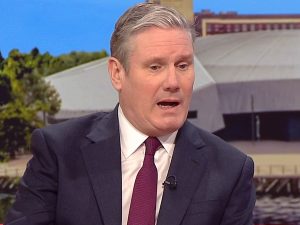People’s Universal Credit payment is probably not covering the “essentials” in life. That’s the verdict of the Trussell Trust, which has launched a petition calling on politicians to act. It comes as the rates of destitution in the UK have rocketed in recent years – partly thanks to the Department for Work and Pensions (DWP). So, is your Universal Credit payment covering life’s essentials? Probably not.
Universal Credit payment leaving millions destitute
Think tank the Joseph Rowntree Foundation (JRF) conducted research into destitution last year. It describes this as being one of two things:
1. Lack of access to at least two of six items needed to meet your most basic physical needs to stay warm, dry, clean and fed (shelter, food, heating, lighting, clothing and footwear, and basic toiletries) because you cannot afford them.
2. Extremely low or no income indicating that you cannot afford the items described above.
Since the JRF’s last report, the situation has worsened. The think tank found that, in 2022, 3.8 million people were destitute at some point – up 61% since 2019. This figure includes around one million children, up 88% since 2019.
However, most shockingly, these figures represent a 148% increase in overall destitution since 2017, and a 186% increase for children. Moreover, a staggering 62% of people in destitution were chronically ill and/or disabled. A further 72% of destitute people were reliant on benefits as their main source of income.
So, the Trussell Trust is acting on this.
DWP: make sure the Universal Credit payment covers the essentials
The foodbank charity has launched a petition. It’s calling on the UK’s political parties to pledge to make sure Universal Credit is enough to properly live on. This may seem like an obvious policy that should be in place already. However, the DWP has consistently failed to make people’s Universal Credit payments sufficient.
For example, the DWP increased Universal Credit by 10.1% from 1 April 2023. However, benefit claimants didn’t actually see an increase in April, overall. In reality, the DWP took people’s benefits back up to the rate they were at in April 2022. This is because the rising cost of everything (‘inflation’) was been more than the DWP’s 10.1% increase. This is called a ‘real-terms cut’.
From April 2024, the DWP will put Universal Credit up again – this time, by 6.7%. Once again, though, this is not enough – as most people will still be worse off because of inflation. For example, think tank the New Economics Foundation says that:
- An out-of-work single person over 25 on Universal Credit would be £670 a year worse off than in April 2023.
- A a lone parent with one child would be £350 worse off.
Sign the Trussell Trust petition
So, all this about the Universal Credit payment makes the Trussell Trust’s petition all the more important. It said:
Despite living in one of the wealthiest countries in the world, five out of six low-income households receiving Universal Credit are going without essentials, driving more and more people into hardship and through the doors of food banks.
Do you agree this isn’t right?
Everyone’s circumstances can change. Losing your job, needing to care for a sick family member, breaking up with your partner – these are things that can happen to any of us.
Our social security system should offer adequate support to anyone in need of help, but right now it’s not based on an objective assessment of what things cost and isn’t even providing enough to cover life’s essentials.
Will you help change this?
If you do want to try and help change this – and get people’s Universal Credit payment increased – you can sign the petition here. Universal Credit payments are blatantly not enough. The DWP needs to act – but it only will if politicians force it to.
Feature image via london.gov.uk




